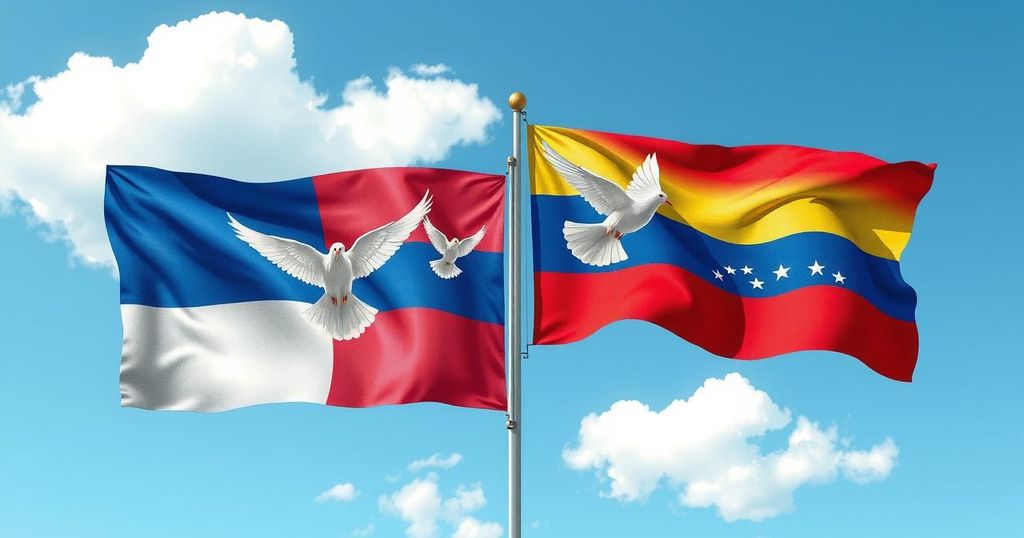El Salvador Proposes Exchange of Deportees with Venezuela

Salvadoran President Nayib Bukele proposed an exchange of 252 Venezuelan deportees for political prisoners held in Venezuela. This offer follows tensions between the Trump administration and federal judges regarding deportation policies under a historic law. Bukele highlighted the criminal background of deported individuals, contrasting it with the political nature of Venezuelan prisoners. The situation raises significant legal and constitutional implications.
On Sunday, Salvadoran President Nayib Bukele proposed a humanitarian agreement to Venezuelan President Nicolás Maduro, suggesting the exchange of 252 Venezuelans deported to El Salvador by the United States for an equal number of political prisoners held in Venezuela. This offer emerged in the wake of criticism directed towards U.S. Supreme Court judges by President Donald Trump regarding deportation policies under a historical wartime law.
President Bukele communicated through X, stating that he seeks the repatriation of the deported Venezuelans, arguing that these individuals were apprehended due to their links with gangs such as Tren de Aragua. Since the Trump administration deemed this gang a terrorist organization, the U.S. has transferred over 288 alleged gang members to El Salvador, compensating Bukele’s government for their detention in the CECOT prison, notorious for its harsh conditions.
The Trump administration has faced opposition from federal judges regarding these deportations. Recent Supreme Court orders have temporarily stalled the deportations of Venezuelan migrants in Texas, amidst concerns raised by rights groups. This ruling prevents the expulsion of migrants under the 1798 Alien Enemies Act, historically employed during World War II.
Trump, without identifying the Supreme Court specifically, condemned judges and officials on his Truth Social platform for what he described as a “sinister attack” on the nation, complicating relations with federal judges and Democratic lawmakers. The situation escalated to the point where Senator Amy Klobuchar warned of a possible constitutional crisis due to the administration’s perceived overreach.
The case of Maryland resident Kilmar Abrego Garcia exemplifies the problematic deportation practices, as he was wrongfully deported due to an “administrative error.” Despite the Supreme Court’s directive for his return, Trump insisted that Abrego Garcia is a gang member, sharing misleading imagery to support his claims. Senator Chris Van Hollen challenged the administration to prove its compliance with U.S. laws concerning deportations, emphasizing the need to uphold legal standards.
In addressing the political prisoners in Venezuela, Bukele noted that many of the individuals currently detained in El Salvador have violent criminal histories. In contrast, he contended that the political prisoners in Venezuela are unjustly incarcerated for opposing the Maduro regime. Bukele specifically cited prominent Venezuelan prisoners he wishes to see released, highlighting the plight of others from various nations, including citizens from the U.S. and Europe.
The proposed deportee exchange between El Salvador and Venezuela showcases complex geopolitical dynamics involving migration, human rights, and legal frameworks. President Bukele’s offer seeks to negotiate the return of Venezuelans deported by the U.S. against the release of political prisoners in Venezuela. Ongoing tensions between the Trump administration and the judiciary complicate matters, raising significant constitutional questions about deportation practices. The situation underscores the multifaceted challenges associated with immigration policy and international relations.
Original Source: www.vtcng.com








